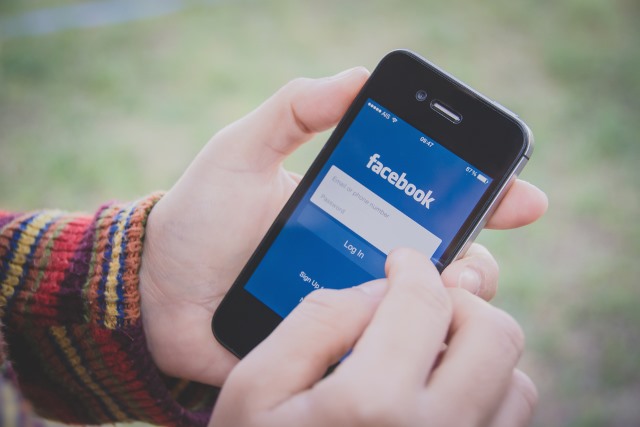
Facebook opens up about how it controls your newsfeed
Earlier today, Facebook announced the latest tweak to newsfeeds. Having denied being politically bias towards Brexit, or having a liberal leaning, Facebook continues to face question and criticism about how its news feeds and trending topics are formulated.
As well as updating the way newsfeeds are populated, Facebook today revealed just how it choses what appears in your newsfeeds. This isn’t a case of full transparency, but it is an interesting insight nonetheless.

Facebook tweaks its newsfeed, yet again, so you'll see more posts from people you actually know
When it's not messing around with privacy settings and manipulating trending topics, there's nothing Facebook seems to like more than to tinker with timelines. Today the social network announces the latest changes to your newsfeed -- now you should see more posts from your friends and family.
The problem we currently face, Facebook says, is that there is "far too much information for any one person to consume". This is where algorithms come into play, meddling with timelines and newsfeeds in ways that never please everyone. The latest change promises that content from "the friends you care about" will appear "higher up in your News Feed".

Facebook launches Share and Save extensions for Chrome, redesigns Social Plugin buttons
Facebook is all about sharing and consuming, and today the social network launches two new extensions for the Chrome browser that make it easy to do both. The Share to Facebook and Save to Facebook extensions do very much what you would expect, encouraging not only sharing, but also the use of Facebook as a bookmarking tool for articles you want to read later.
As well as these two extensions, Facebook is also rolling out redesigned Social Plugin buttons. The Like button that you see adorning so many websites is getting a modern makeover, losing the iconic Facebook 'f' logo, and gaining an emoji-lover-friendly thumbs up icon instead.

Happy fifth birthday, Google+: It's like you were never here
I tend to look back fondly at the technology that has left a mark on me throughout the years. Memorable trips down memory lane involve things that have been a part of my digital lifestyle for many, many years. Google+ is one of them. As a longtime member, I should be reminiscing now as today the social network turns five. But, for some reason, the only thing that I can think about is knowing from the get go that it would never be the next big thing. It looks like I was onto something.
Google+ is one of the largest social networks, but if you are an active user like me you are probably wondering what all those other members are up to because few of them seem to share new things these days. As time goes by, it feels like Google+ is shrinking to a small crowd of enthusiasts. Few people seem to care about it lately, and I am slowly joining the ranks of those who can't be bothered anymore.
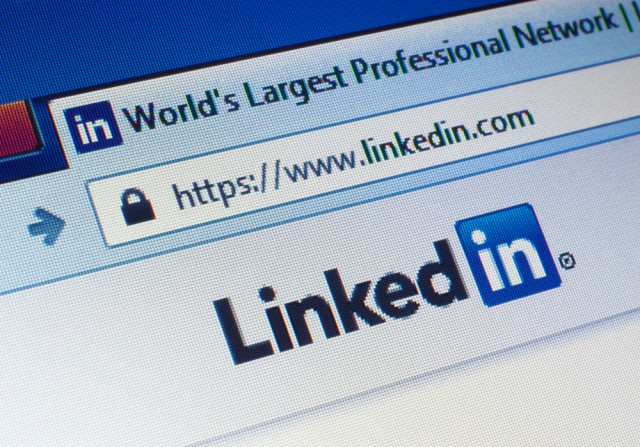
Think twice before accepting LinkedIn invitations from strangers
Have you ever wondered if someone on LinkedIn is not really who they say they are? I’m not being paranoid here, this is a legitimate question.
If your answer is "No", you’re not alone. A vast majority of people never wonder if there are fake accounts requesting to connect on the professional social network, and almost a quarter accept requests from people they don’t really know.

Check your privacy settings -- Facebook is (probably) sharing your employment history
Somewhat out of the blue, Facebook has decided to change the way it displays certain information on your profile. Not content with showing your current place of work -- whether this is real, or some clever pun you've engineered -- it now also shows your employment history.
This is not a direct change to privacy settings as it does not make public anything that had been previously set to be private. It does, however, broadcast your previous places of work to people looking at your profile. You might not like this. You might want to do something about it.

Mark Zuckerberg is so concerned about his privacy that he tapes over his webcam and microphone
Facebook and privacy are not words usually associated with one another, and it seems this holds true even for the man at the top. Only recently we learned that Mark Zuckerberg uses terrible passwords, making it easy to hack his accounts, but now it turns out he's also quite paranoid.
As Instagram popped champagne corks for reaching the milestone of half a billion users, Zuckerberg posted a celebratory picture. Eagle-eyed people soon pointed out that both the mic and camera of his laptop were taped over.

Twitter and Vine introduce support for much longer videos
While Twitter is primarily a text-based social network, more recently there has been an increased importance placed on images and videos. Just as tweets are limited to a certain number of characters, videos have -- until today -- been limited to 30 seconds in length. Now Twitter is embracing video in a big way, and today increases the maximum length to 140 seconds -- continuing the love affair with the number 140.
The company says that the number of video posted to Twitter has increased by 50 percent since the beginning of the year. This is an astonishing increase in just six months, and it makes the video-related changes all the more understandable. Vine users will also be able to take advantage of longer videos, but there's something of a catch.
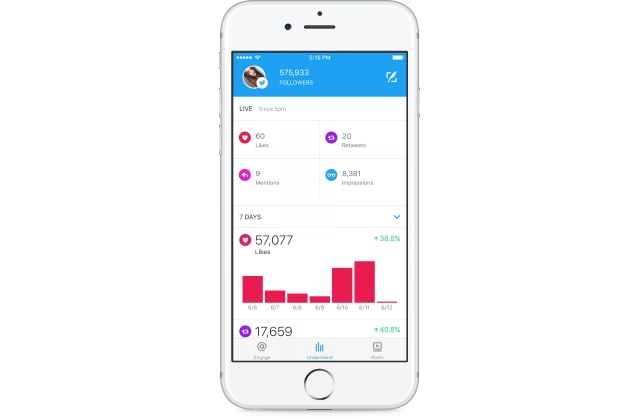
Check the performance of your tweets with Twitter Engage for iOS
Today Twitter launches a companion app designed for anyone who wants to analyse their tweet activity. Pulling out all the buzzwords, Twitter says it "provides real-time data and insights, allowing you to quickly understand, engage, and grow your audiences".
This is not just about gaining more followers, it's about making more meaningful connections, and trying out different marketing ideas. Twitter already provides fairly detailed analytics on its website, but here things are presented in a more accessible way. It also provides a more detailed breakdown of audience demographics for better targeting.
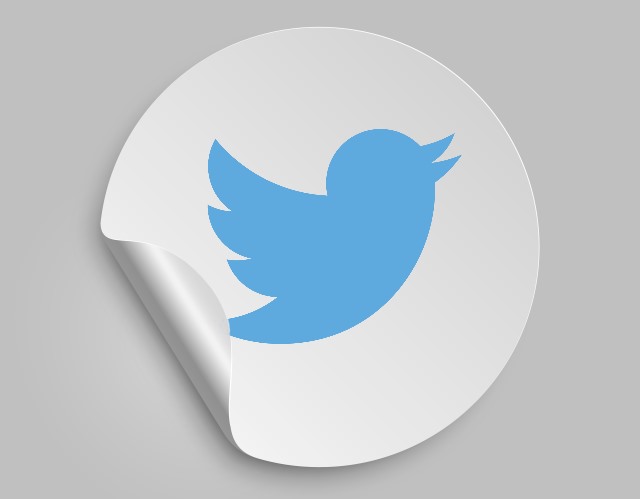
Twitter buys AI image firm Magic Pony Technology
Twitter has demonstrated its commitment to artificial intelligence and machine learning by splashing a reported $150m on London-based Magic Pony Technology. The aim is to use the company's advanced technology to improve Twitter's live and video experiences.
Jack Dorsey describes Magic Pony Technology as a 'company that has developed novel machine learning techniques for visual processing'. Thus far this has been used to sharpen blurry images, create computer-generated images from scratch, and to learn to recognize objects.
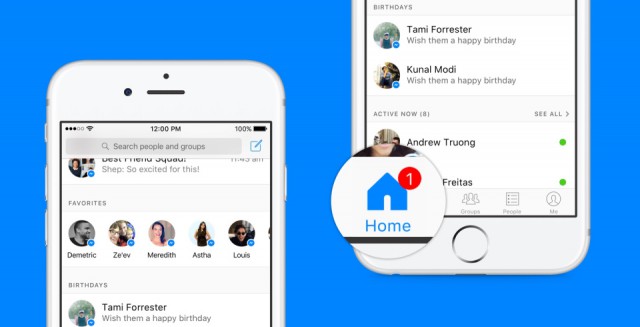
Facebook Messenger is turning into a social coach
There comes a time when the company behind a popular product feels the need to do more, probably because it has reached a point where there is little that can be done to improve what has made it such a success in the first place. That is also the moment when things tend to go south as far as the user experience is concerned.
Facebook Messenger has reached that point. The social network has one of the most-popular messaging apps today, boasting over 900 million active users every month, but instead of keeping things simple it is now trying to turn Messenger into what I can only describe as a social coach.

Most of us rely on social media for news
In the lives of many consumers, social networks have begun to replace traditional news outlets as their primary source of news, making it much more difficult for publishers who still rely on a more traditional business model to earn revenue from their stories.
In its annual report on digital news, the Reuters Institute for the Study of Journalism (RISJ) highlights the rise of Facebook, YouTube and Twitter and how they transformed the way news media is consumed today. The institute conducted a study across 26 countries that found that over 50 percent of all the Internet users turned to social media to get their news.

Why is Microsoft buying LinkedIn? [Q&A]
Major tech companies rarely manage to surprise us, but Microsoft did it earlier this week when it announced the acquisition of LinkedIn. The software giant is spending an enormous sum -- $26.2 billion, to be exact -- to get its hands on the popular business-focused social network. The new Microsoft likes to take chances, and this high-profile purchase is certainly proof of that.
CEO Satya Nadella says that buying LinkedIn will allow Microsoft to "change the way the world works", but what is its motivation behind the purchase, how does it tie into its current strategy, and what do the two companies stand to gain from it?
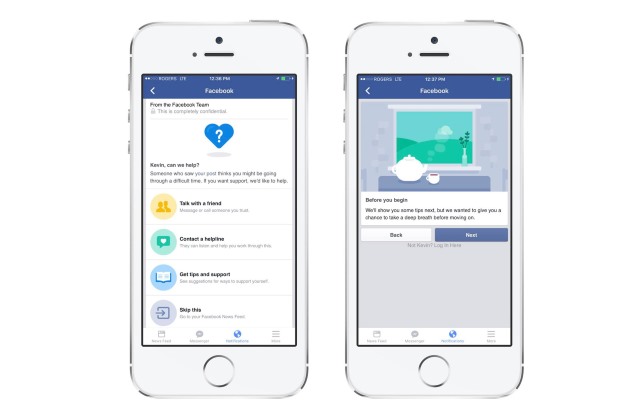
Facebook rolls out suicide prevention tools around the world
Facebook has announced that an updated batch of suicide prevention tools are being rolled out globally. It's a feature that has been available in some parts of the English-speaking world for a little while, but now the social network has decided to offer them up to everyone.
The aim is to make it easier for people to reach out to friends who they believe may be either suicidal, or at risk of self-harming. The tools have been developed in conjunction with people with experience of suicide and self-harm, as well as mental health charities. In addition to giving Facebook users the chance to reach out to those they may be concerned about, Facebook is also providing a round-the-clock worldwide team to whom concerns can be voiced.

Facebook denies being pro-Brexit, but removes pro-Brexit status option anyway
In the US, Facebook has been hit with accusations of having a anti-conservative bias in its news coverage. In the UK, the social network stands accused of being pro-Brexit in the upcoming EU referendum.
The Brexit-related accusations came about after it was noticed that Facebook offered a readymade status update proclaiming to be "in favour of leaving the EU", but didn’t have a balancing pro-remain option as easily accessible. Despite this, Facebook categorically denies any form of bias.
